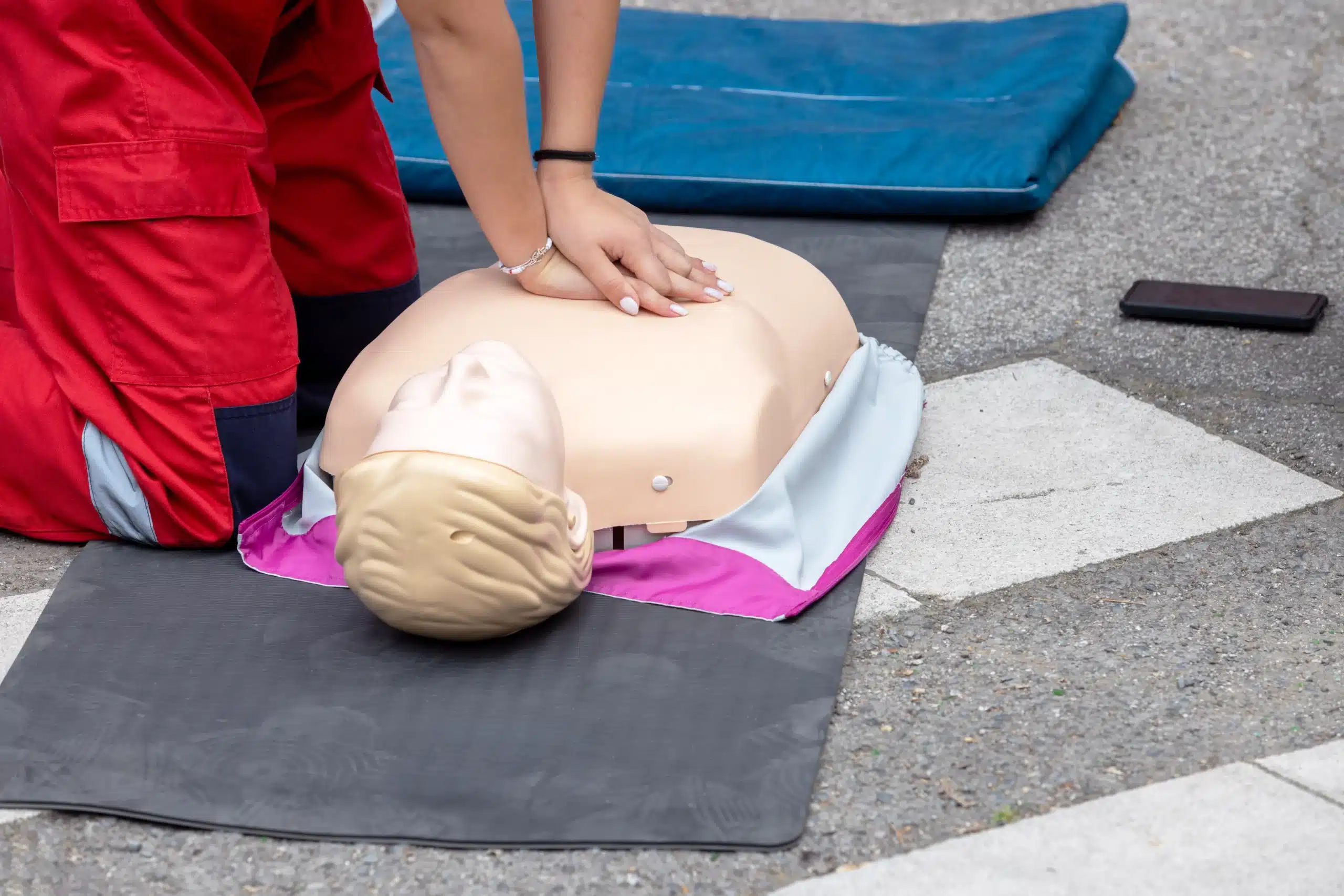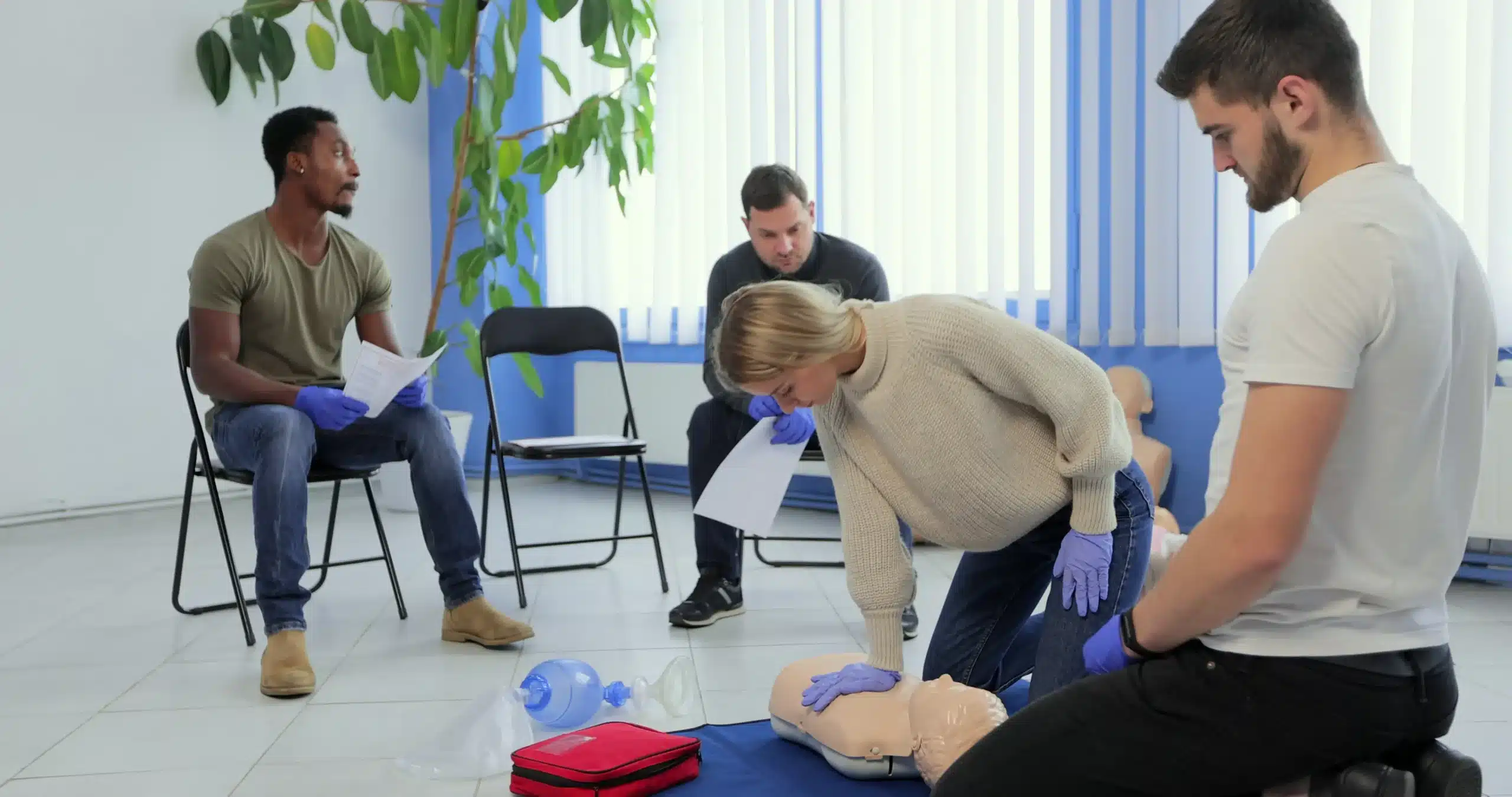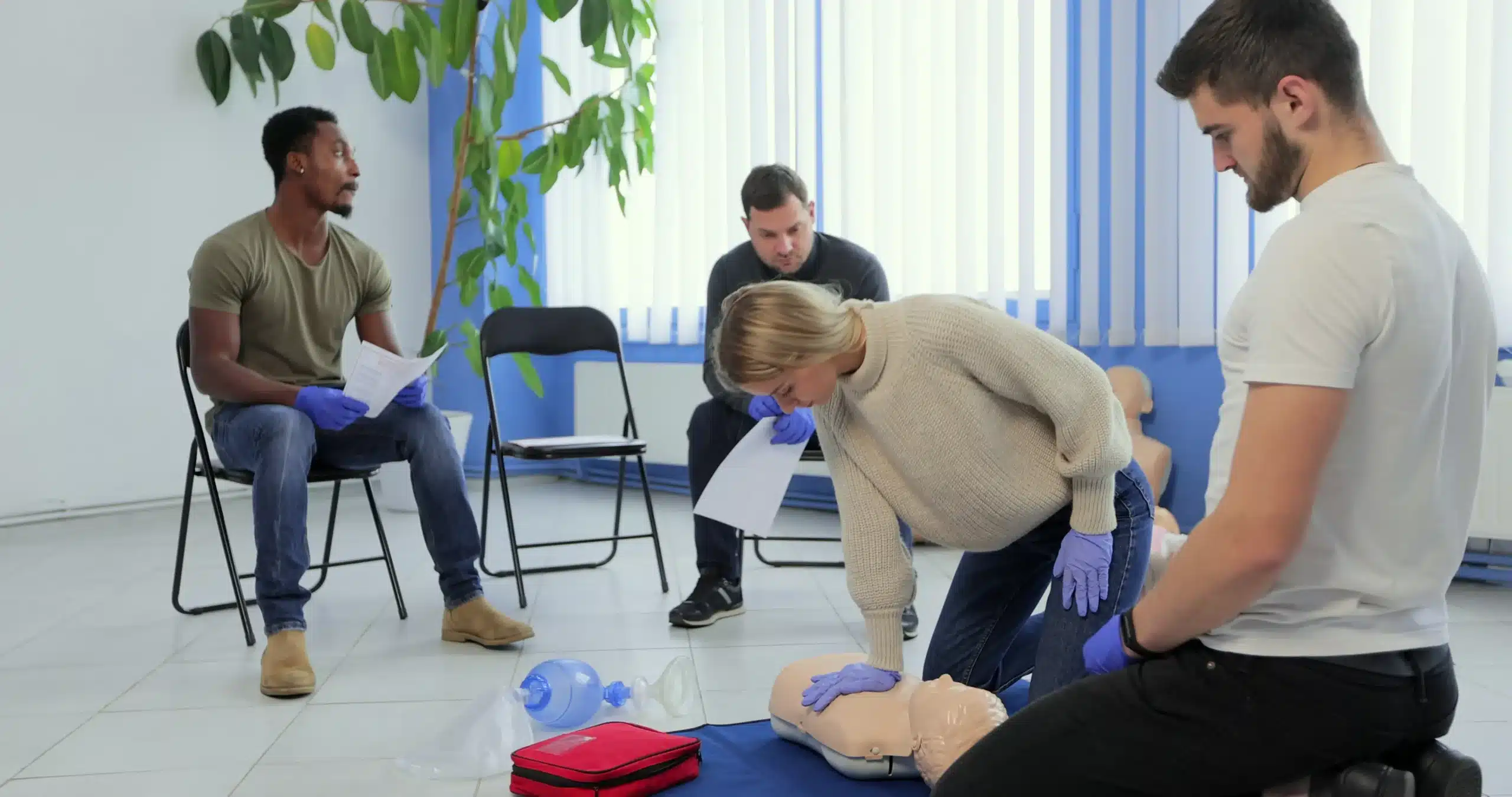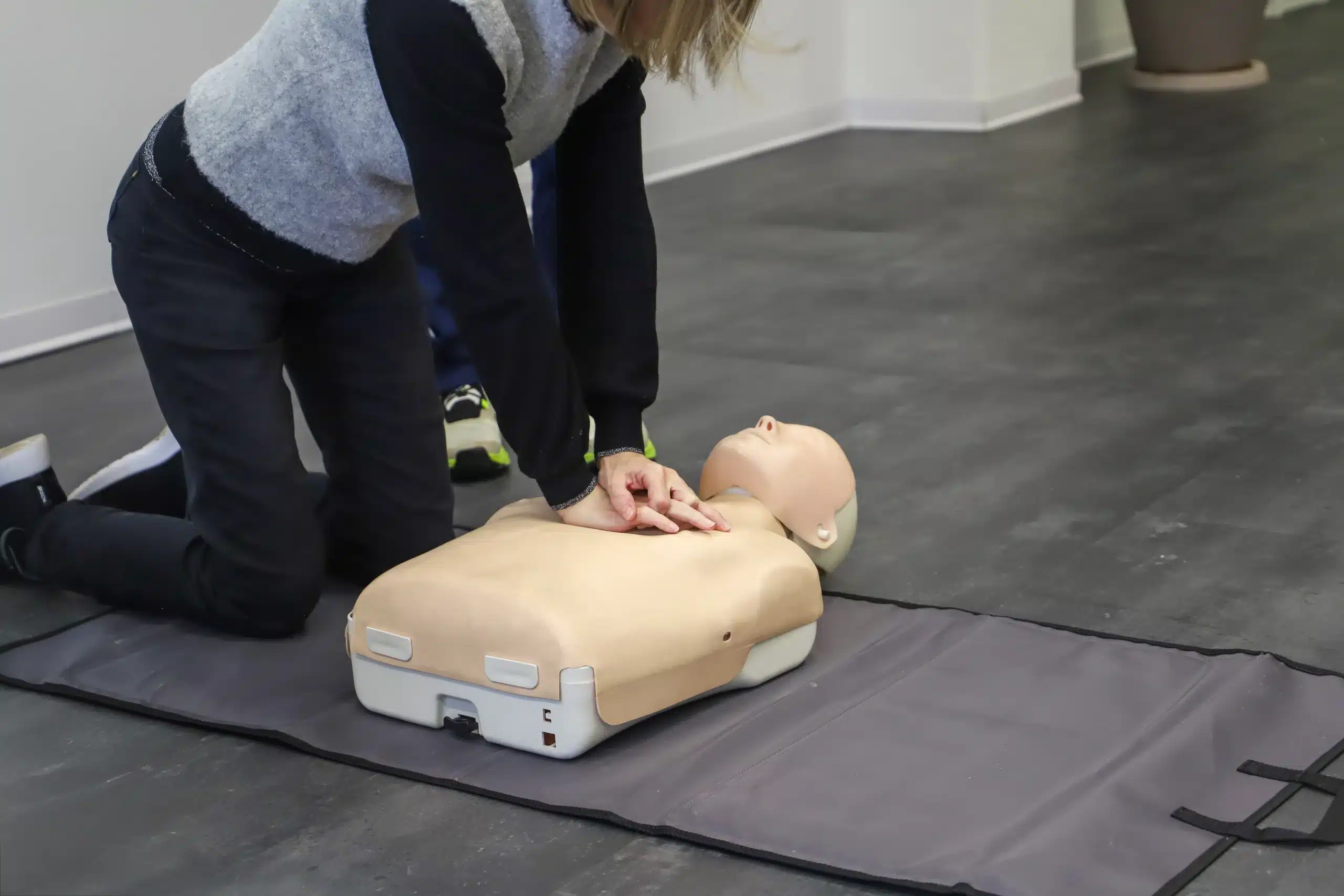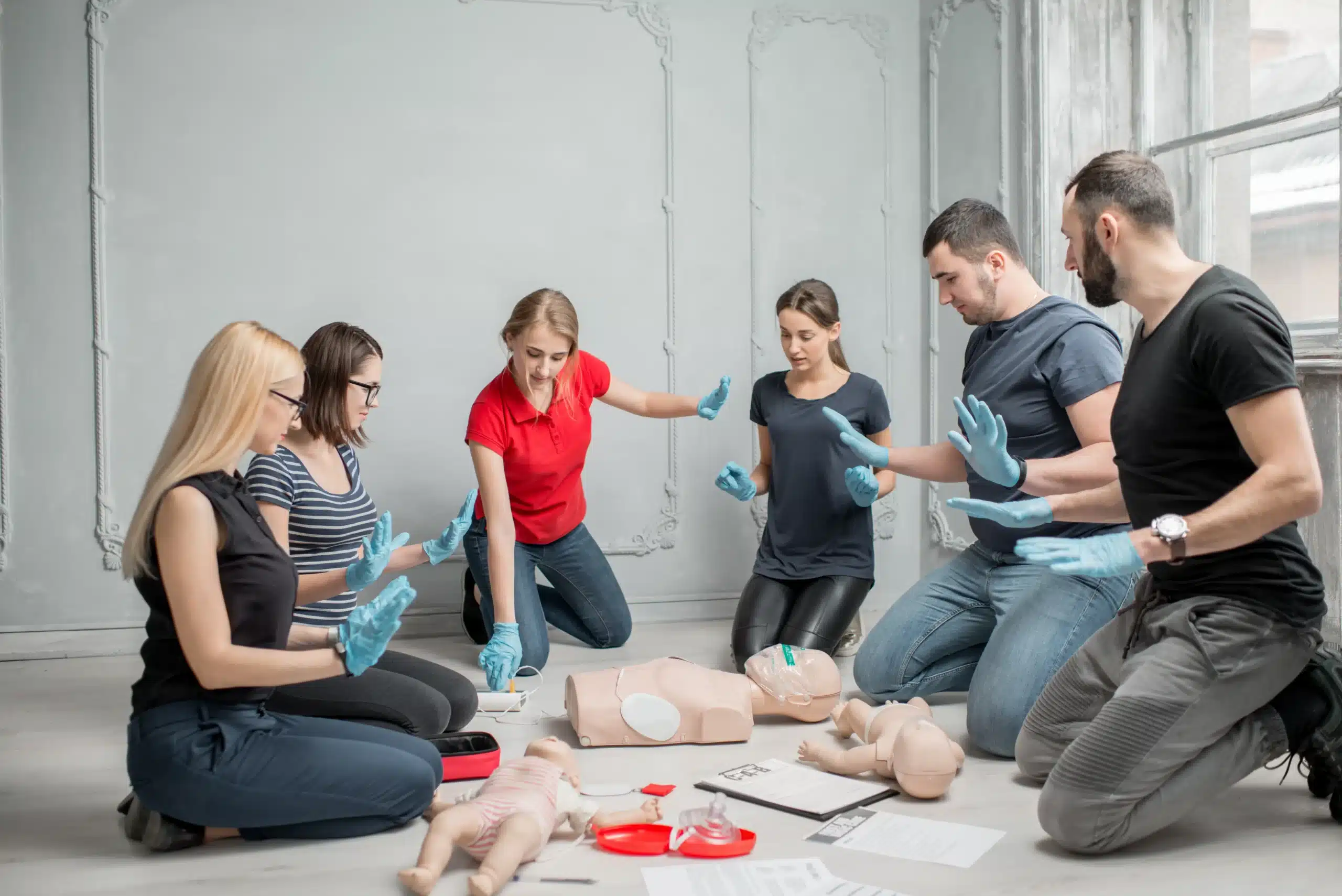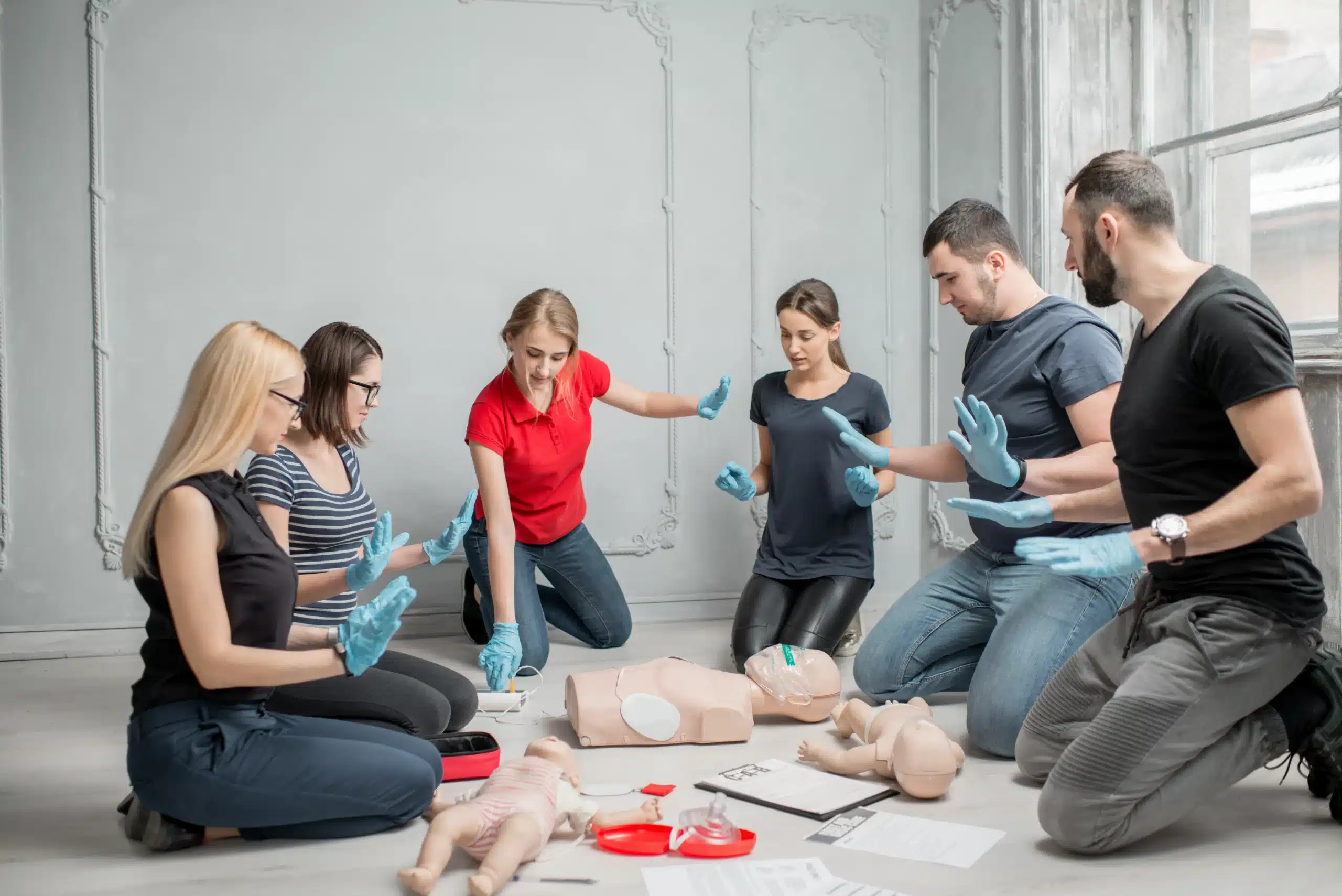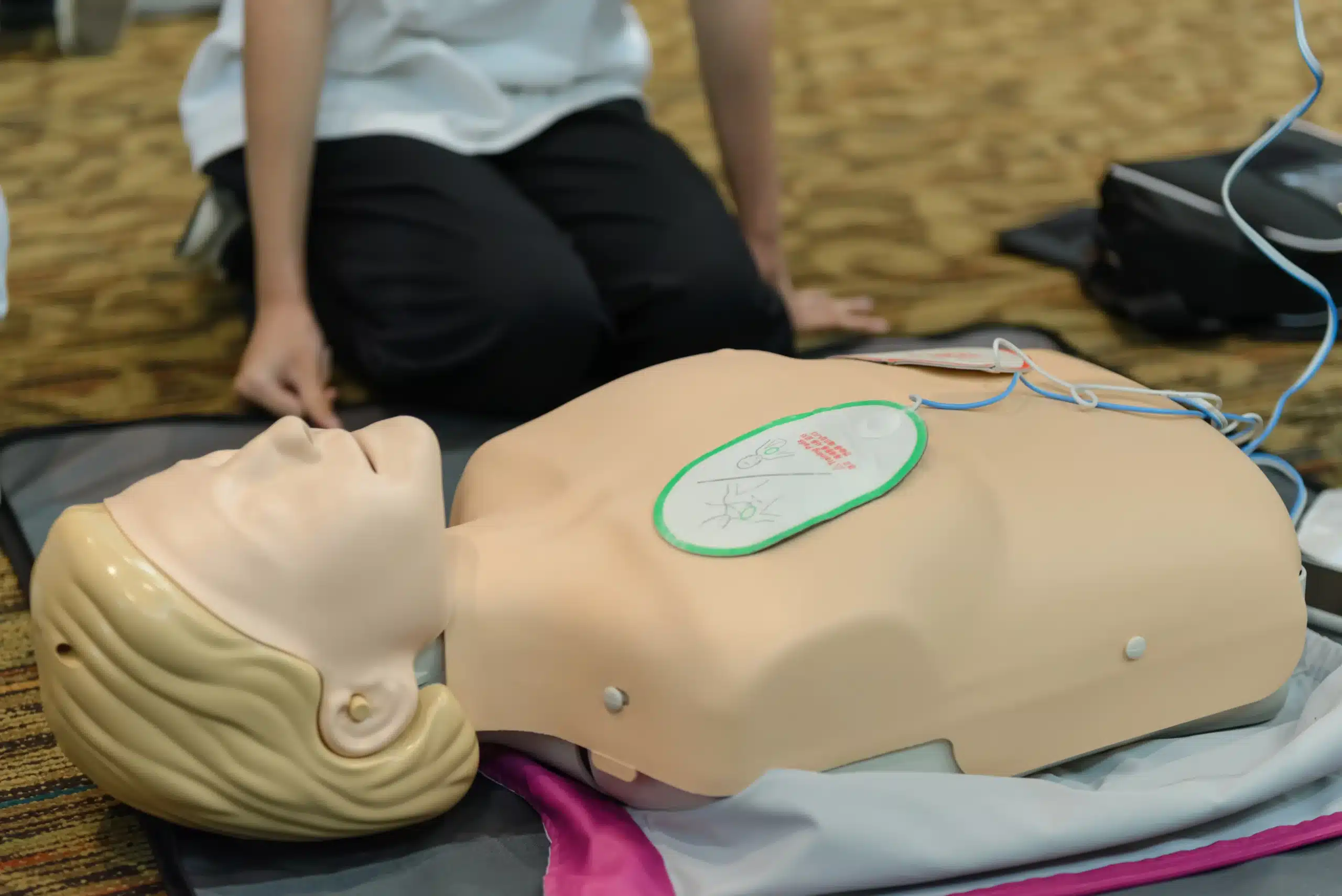Living in Oakland means being part of a diverse and dynamic community. Contributing to that community can take many forms, including being equipped to handle medical emergencies. CPR certification in Oakland is a powerful way to make a difference. This guide will explore the various CPR certification options available in Oakland, including courses for healthcare providers, the general public, and those seeking specialized training. We’ll also delve into the costs, time commitment, and renewal requirements, so you can make an informed decision. Join the ranks of those prepared to act in times of need.
Key Takeaways
- CPR certification empowers you to handle medical emergencies: Learning CPR, whether for personal or professional reasons, equips you with the skills to respond confidently and potentially save a life.
- Finding the right CPR course requires careful consideration: Think about your specific needs, the course type, the provider’s reputation, and the overall value offered, including instructor experience and available formats.
- Staying current with your CPR skills is crucial for effective response: Regular practice and pursuing continuing education opportunities, such as the RQI program, ensure your skills remain sharp and aligned with the latest guidelines.
What is CPR Certification in Oakland?
What is CPR certification and why is it important?
CPR certification confirms you’ve completed a course and demonstrated the skills to perform cardiopulmonary resuscitation. It’s a valuable credential, especially for healthcare providers and those in fields requiring it. Even if your workplace doesn’t mandate CPR training, learning CPR is a powerful skill. A CPR class teaches you how to respond effectively in a medical emergency. American Heart Association (AHA) certified courses offer standardized training recognized by employers across the country. Safety Training Seminars offers a range of AHA courses right here in Oakland.
Common CPR training misconceptions
One common misconception is that only medical professionals can perform CPR. The truth is, anyone can learn and use this life-saving technique. Bystander intervention is often crucial in emergencies. Another myth is that CPR always saves lives. While CPR significantly increases the chances of survival, it doesn’t guarantee revival. It’s important to have realistic expectations. Some also believe you must perform CPR continuously until medical help arrives. While uninterrupted CPR is ideal, it’s okay to pause briefly to call 911 or to use an AED. For more information, check out this article on common CPR myths.
Who needs CPR certification?
CPR training benefits everyone, from healthcare providers like doctors and nurses to those working with children, such as teachers and childcare providers. Parents, grandparents, and other family members can also benefit from knowing CPR. The BLS RQI program from the American Heart Association is an excellent option for healthcare professionals needing CPR certification. Whether for personal or professional reasons, learning CPR equips you to handle medical emergencies and potentially save a life. Contact us to find the right CPR class for you.
CPR Certification Courses: What’s Available?
Finding the right CPR certification course can feel overwhelming with so many options. This section breaks down the different types of courses available in Oakland, so you can choose the best fit for your needs.
Basic Life Support (BLS)
The BLS course from the American Heart Association is designed for healthcare providers like doctors, nurses, paramedics, and other medical professionals. It covers core life-saving skills for adults, children, and infants, including CPR, using an AED, and relieving choking. BLS certification is often a job requirement for these professions and emphasizes teamwork and high-quality CPR. Safety Training Seminars offers BLS training with a focus on high-quality instruction and competitive prices.
Adult, Child, and Infant CPR
This comprehensive CPR course covers life-saving techniques for people of all ages. You’ll learn how to recognize the signs of a cardiac arrest, perform chest compressions, give rescue breaths, and use an AED. These skills are invaluable for anyone, from parents and caregivers to teachers and coaches. Knowing how to respond in an emergency can make a real difference. CPR Certification Oakland offers American Heart Association-certified CPR courses that include pediatric CPR and first aid, available in both online and in-person formats.
First Aid and CPR Combination Courses
Combining CPR and First Aid training into one course is a convenient and efficient way to gain essential life-saving skills. You’ll learn how to respond to various medical emergencies, from treating minor cuts and burns to managing more serious situations like allergic reactions and strokes. Basic CPR classes can take as little as 60 minutes, and some online programs offer this combined approach, making it easier to fit into your busy schedule. Consider this option if you want a well-rounded skill set for handling various emergencies.
Advanced Courses for Healthcare Professionals
Healthcare professionals often require specialized certifications beyond basic CPR. The American Heart Association offers advanced courses like Advanced Cardiovascular Life Support (ACLS) and Pediatric Advanced Life Support (PALS). These courses build upon the foundation of BLS and provide in-depth training for managing complex cardiovascular and respiratory emergencies. The RQI program is an efficient way for healthcare professionals to maintain these certifications. It’s a self-directed, skills-based program that allows for quick and easy renewal. Contact us to learn more about advanced certifications and the RQI program.
Top CPR Certification Providers in Oakland & Costs
Finding the right CPR certification course in Oakland depends on your individual needs and budget. Here’s a look at some popular options:
Safety Training Seminars
Safety Training Seminars offers a variety of American Heart Association (AHA) courses, including BLS, ACLS, PALS, CPR, and First Aid. They’re committed to providing high-quality instruction at competitive prices. Learn more about their low price guarantee and their convenient Oakland location. For healthcare providers, they also offer the streamlined RQI program for efficient recertification.
American Red Cross
The American Red Cross is a well-known provider of CPR and first aid training. Their Oakland courses are taught by experienced instructors who prioritize clear instruction and provide plenty of opportunities for questions.
American Heart Association
While the AHA doesn’t directly teach classes, they establish the standards for CPR training. Holding an AHA certification is widely recognized and respected. Many providers in Oakland, including Safety Training Seminars, offer AHA-certified courses, ensuring your training meets the latest guidelines.
CPR Certification Oakland
CPR Certification Oakland specializes in AHA-certified CPR and First Aid classes. They have an established history of training students in the Oakland area. Visit their website for details on schedules and course offerings.
Local Hospitals and Community Centers
Local hospitals and community centers frequently offer CPR classes, often providing a convenient and budget-friendly option. Check with facilities near you, or use resources like our Northern California CPR directory to find additional providers.
Price Ranges and Value for Money
CPR certification costs in Oakland vary based on the provider and course type. Basic CPR classes generally range from $60 to $90, while combined CPR and First Aid classes are typically a bit more. When comparing prices, consider the overall value, including the comprehensiveness of the training, instructor experience, and scheduling flexibility.
Discounts, Promotions, and Group Rates
Many providers offer discounts for groups, students, or organizations. Always ask about potential discounts when contacting a provider. Some may also provide on-site training for larger groups, which can be a more economical choice.
What Happens During CPR Training?
CPR training gives you the skills and confidence to act in medical emergencies. Here’s what you can expect in a typical CPR class:
Class Duration and Time Commitment
Plan for about three hours to complete a CPR class, such as those offered by Safety Training Seminars. This timeframe balances instruction with hands-on practice.
In-Person, Online, and Hybrid Options
CPR classes come in several formats. In-person training offers hands-on learning and interaction with instructors. Online courses provide flexibility and cover the basics through digital content. Hybrid classes blend online learning with in-person skills sessions. For hands-on learning, explore CPR classes in Oakland and other Bay Area locations.
Key CPR Skills You’ll Learn
You’ll learn a range of essential skills, from assessing a situation to performing chest compressions and rescue breaths. Training also covers clearing obstructed airways and recognizing signs of heart attack or stroke.
Hands-on Practice with Mannequins
Working with realistic training mannequins is central to CPR training. This practice helps you develop proper technique, build muscle memory for compressions, and gain confidence.
Learning to Use AEDs
CPR training includes learning how to use an AED (Automated External Defibrillator). You’ll learn to assess the situation, apply AED pads, and follow the device’s prompts to potentially save a life.
Written and Practical Exams
Most CPR courses include written and practical exams. The written exam tests your knowledge of CPR principles, while the practical exam evaluates your CPR and AED skills. Passing both earns you your CPR certification.
Maintain Your CPR Certification
Once you’ve earned your CPR certification, staying current is key. Knowing how to maintain your skills and certifications ensures you’re always prepared to help in an emergency.
Renewal Requirements and Frequency
CPR certifications, like BLS for Healthcare Providers, typically expire every two years. The American Heart Association (AHA) sets these standards to ensure everyone maintains up-to-date knowledge and skills. Regular renewal demonstrates your commitment to providing high-quality care. Check with your certifying organization or employer for specific renewal requirements.
Continuing Education Opportunities
Staying on top of the latest CPR guidelines is easier than you think. Safety Training Seminars offers a range of AHA courses—including CPR, BLS, ACLS, and PALS—right here in Northern California. These courses provide convenient continuing education options to keep your skills sharp. You can find more information on our website about the different courses we offer.
Keep Your Skills Up-to-Date
Even between renewals, regular practice is crucial. Short, frequent practice sessions, combined with immediate feedback, help you maintain proficiency and confidence. Think of it like any other skill—the more you practice, the better you perform under pressure. Consider practicing with a friend or family member to stay comfortable with the techniques.
RQI Program for Healthcare Professionals
For healthcare professionals, the RQI program offers a flexible and efficient way to renew your BLS certification. This program is designed for busy professionals like medical students, nurses, paramedics, and others who need CPR training. It allows you to complete coursework at your own pace, making it easier to fit into your schedule. Learn more about the benefits of the RQI program and how it can help you maintain your certification.
Choose the Right CPR Certification Course in Oakland
Finding the right CPR certification course in Oakland depends on several factors. Think about your specific needs and what you want to achieve with your certification. This section will guide you through the decision-making process.
Factors to consider when selecting a provider
Look for a training provider committed to high-quality instruction. Check if they are affiliated with a nationally recognized organization like the American Heart Association (AHA). Safety Training Seminars, for example, offers a variety of AHA courses, including BLS, ACLS, PALS, CPR, and First Aid. Also, consider the provider’s reputation and read reviews from past students. A provider with a strong track record and positive feedback is more likely to offer a valuable learning experience. Finally, consider the instructor’s experience and qualifications. Experienced instructors can provide better guidance and support.
Match the course type to your needs
Different CPR courses cater to different needs. If you need certification for your job, make sure the course you choose meets your employer’s requirements. Safety Training Seminars offers a range of AHA courses in Oakland. Basic Life Support (BLS) certification is often required for healthcare providers, while a general CPR and First Aid course might be suitable for teachers, coaches, or childcare providers. While convenient, online CPR courses often lack the hands-on practice crucial for developing the muscle memory and confidence needed to perform CPR effectively. In-person training provides the opportunity to practice your CPR skills on mannequins and receive immediate feedback from an instructor.
Balance cost, convenience, and quality
Cost is always a factor, but don’t let it be the sole deciding factor. CPR class costs vary depending on the course type and provider. While affordable options are available, remember that quality instruction is essential. Consider the value you’re getting for your money. A slightly more expensive course might offer smaller class sizes, more individual attention, and a better learning environment. Also, consider the location and schedule of the classes. Choose a location that is convenient for you and fits your schedule. Our low price guarantee ensures you get the best possible value.
Tips for successful completion and certification
Once you’ve chosen a course, prepare for a positive learning experience. Review any pre-course materials provided by the instructor. During the class, actively participate, ask questions, and take advantage of the hands-on practice sessions. For healthcare professionals seeking BLS, ACLS, or PALS certification, the RQI program offers a flexible and efficient learning and certification process. After completing the course, practice your skills regularly to maintain proficiency. This will help you stay confident and prepared in case you ever need to use your CPR skills in a real-life emergency. If you have any questions or need further guidance, don’t hesitate to contact us.
Related Articles
- The Lifesaving Importance of CPR in Healthcare
- 7 Common CPR Myths Debunked – San Francisco Bay Area CPR Classes
- CPR Training in Northern California: Your Complete Guide
- BLS Classes in Oakland: The Complete Guide – San Francisco Bay Area CPR Classes
- CPR Certification in Sacramento: Your Guide – San Francisco Bay Area CPR Classes
Frequently Asked Questions
How do I choose the right CPR class for me? Think about why you want CPR training. If it’s for your job, ensure the course aligns with your employer’s requirements. If it’s for personal knowledge, a basic CPR and first aid class might be perfect. Consider your learning style too. Hands-on learners benefit from in-person classes, while busy folks might prefer the flexibility of online or hybrid options. Don’t forget to factor in cost and convenience when making your decision.
What’s the difference between BLS and CPR certification? BLS (Basic Life Support) certification is geared towards healthcare providers and covers a broader range of skills than a standard CPR course. It includes CPR, AED use, and other life-saving techniques for various age groups. Standard CPR certification focuses primarily on CPR for adults, children, and infants.
How long does CPR certification last, and how do I renew it? CPR certification is typically valid for two years. Renewal involves taking another certified course before your current certification expires. For healthcare professionals, the RQI program offers a streamlined renewal process.
Is online CPR certification as good as in-person training? Online CPR certification offers convenience and flexibility, making it a good option for those with busy schedules. However, it often lacks the hands-on practice crucial for building muscle memory and confidence. In-person training provides the opportunity to practice on mannequins and receive immediate feedback from an instructor, which can be invaluable.
What if I have more questions about CPR training in Oakland? Reach out to a local training provider like Safety Training Seminars. They can answer your specific questions about course offerings, schedules, and costs. They can also help you determine which type of CPR training best suits your needs.


